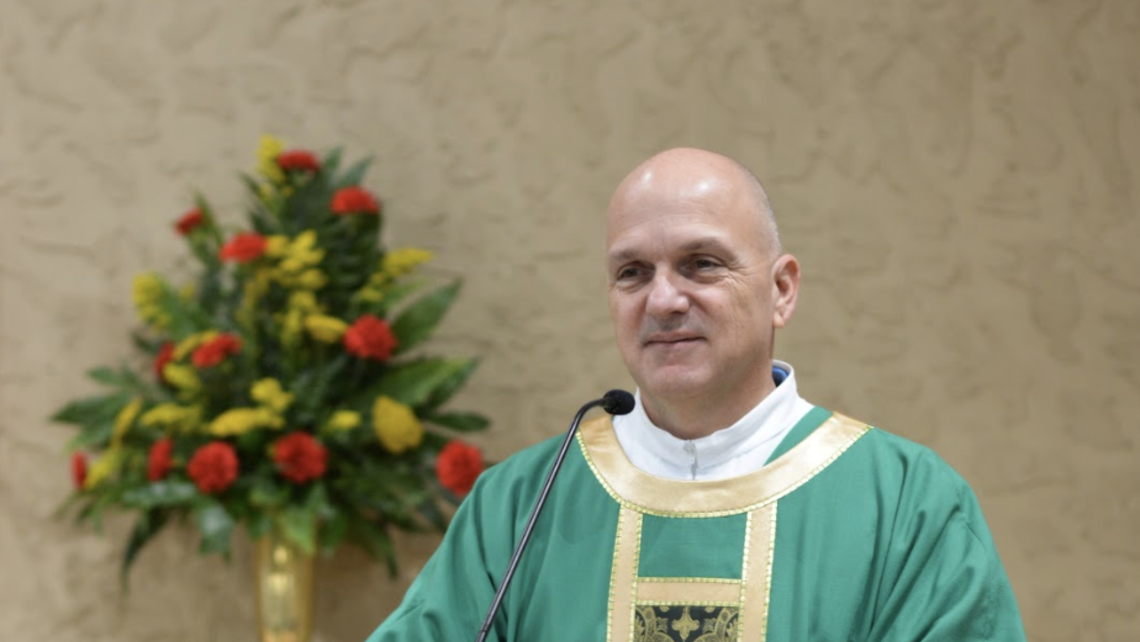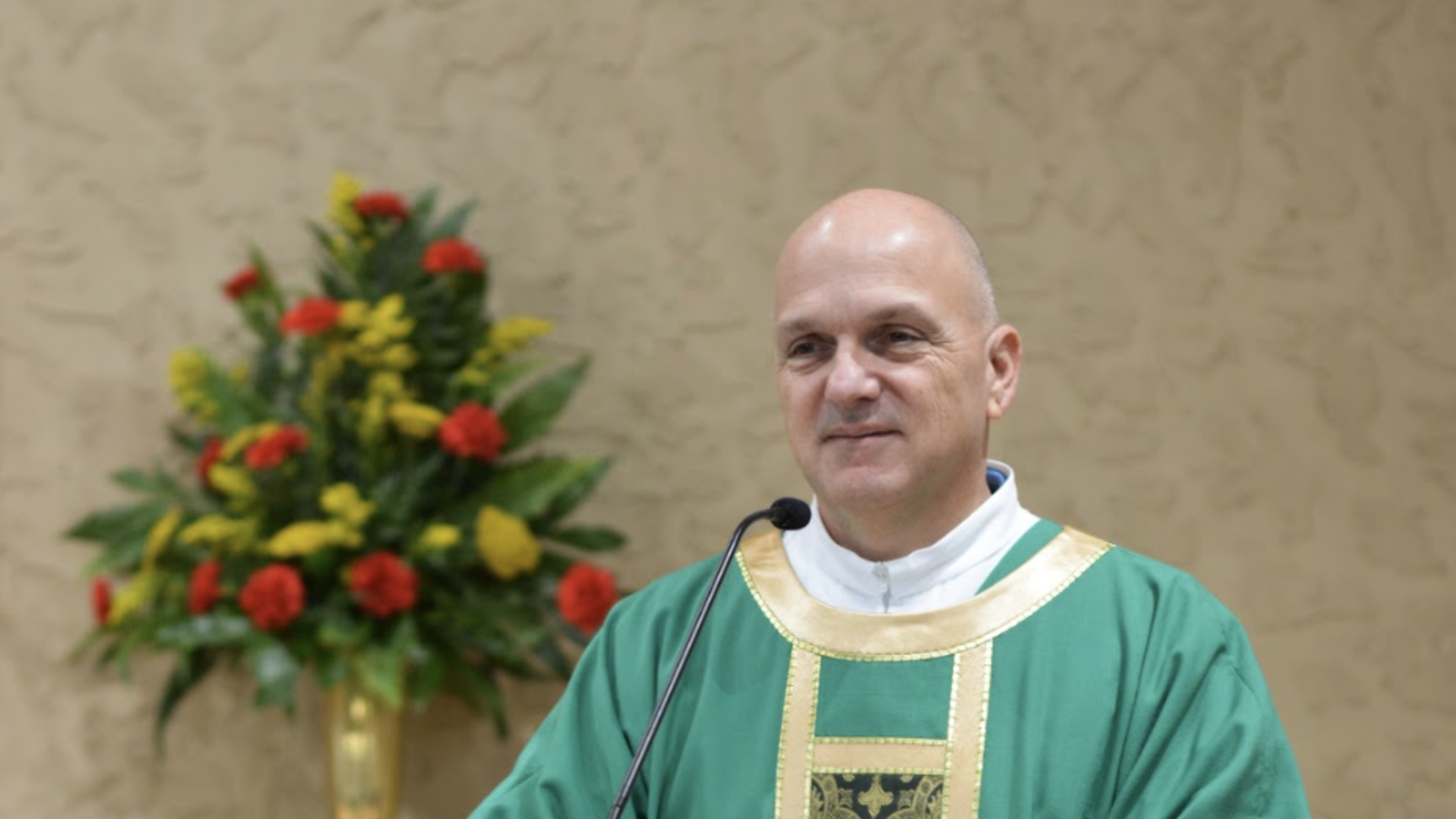
Good morning brothers and sisters. Today’s scripture readings have a lot going on. The end of John the Baptist’s ministry is apparent as he sits in prison. Jesus has begun his public ministry – continuing where John the Baptist left off. The beginning of the fulfillment of the prophecy of the restoration of God’s Kingdom. The calling of the first four apostles. I believe the Gospel of John says it best when describing this transition of ministry service between Jesus and John the Baptist; “He must increase, I must decrease”.
In today’s Gospel from Matthew, we hear about Zebulun and Naphtali which were territories of the northern-most tribes of Israel that were destroyed in 721 BC, sending the inhabitants into exile. Matthew mentions these territories to teach that Jesus’ public ministry inaugurates the restoration of God’s Kingdom where it was first extinguished. Matthew tells us that we see Jesus bring God’s light and salvation into these areas of desolation, fulfilling the prophet Isaiah’s hope: “The people who walked in darkness have seen a great light; upon those who dwelt in the land of gloom a light has shone.”
Jesus brings the light and truth of salvation to the world that the prophet Isaiah foretold – the good news of salvation would reach Jews and Gentiles in the land “beyond the Jordan, Galilee of the nations.” Jesus begins the proclamation of the Gospel here to fulfill the word of God. The Old Testament prophets spoke of God’s promise to send a Redeemer who would establish God's rule. That time is now fulfilled in Jesus who brings the light and truth of the Gospel to the world.
The "good news" brings peace, hope, truth, promise, immortality, and salvation. Jesus takes up John's message of repentance and calls his hearers to believe in the good news he has come to deliver. What is the good news which Jesus brings? It is the good news of peace - the Lord comes to reconcile and restore us to friendship with God. The good news of hope - the Lord comes to dwell with us and to give us a home with him in his heavenly kingdom. The good news of truth - the Lord Jesus sets us free from the lies and deception of Satan and opens our mind to understand the truth and revelation of God's word. The good news of promise - Jesus fulfills the promise of God to reward those who seek him with the treasure of heaven. The good news of immortality - Jesus overcomes sin and death for us in order to raise our lowly bodies to be like his glorious body which will never die again. And the good news of salvation - the Lord Jesus delivers us from every fear, every sin, and every obstacle that would keep us from entering his everlasting kingdom of righteousness, peace, and joy.
The Gospel is the power and the wisdom of God - both power to change and transform our lives and wisdom to show us how to live as sons and daughters of our Father in heaven. Through the gift of the Holy Spirit the Lord makes it possible for us to receive his word with faith and to act upon it with trust and obedience. The Gospel demands a response of faith and obedience to God's gift of salvation in announcing the good news, Jesus makes two demands: repent and believe!
Repentance requires a change of heart - a turning away from sin and disobedience and a turning towards the Lord with faith and submission to his word of truth and righteousness (right living according to God's truth and moral goodness). The Holy Spirit gives us a repentant heart, a true sorrow and hatred for sin and its bad consequences and a firm resolution to avoid whatever would lead us into sin. The Holy Spirit gives us grace to see our sin for what it is - rebellion and a rejection of the love of God. God's grace helps us to turn away from all that would keep us from his love.
We believe, hope, and love Him because He loved us first and drew us to Himself. Faith or belief is an entirely free gift which God gives to us. Believing is only possible by grace and the help of the Holy Spirit who moves the heart and converts it to God. The Holy Spirit opens the eyes of the mind and makes it possible for us to accept and to grow in our understanding of the truth.
Through the gift of the Holy Spirit we can know God personally and the truth he reveals to us through his only begotten Son, the Lord Jesus Christ. To believe that Jesus is Lord and Savior is to accept God's revelation of his Son as the eternal Word of God and the Redeemer who delivers us from the tyranny of sin, Satan, and death. Out of his great love for us God the Father made the supreme sacrifice of his Son on the cross to atone for our sins and to bring us back to himself. Laudate Reflection
On September 30 of last year, Pope Francis issued a letter declaring that the Third Sunday in Ordinary Time was to be set aside every year as the “Sunday of the Word of God.” The Holy Father urged pastors to celebrate this day with special homilies, added reverence to the Scriptures in Mass, and by encouraging us to take up the Scriptures anew and find in them the treasures of God’s word for our lives.
In his letter, Pope Francis spoke about how we cannot read the Bible in the same way we read any other book. “Since faith comes from hearing,” he wrote, “and what is heard is based on the word of Christ, believers are bound to listen attentively to the word of the Lord, both in the celebration of the liturgy and in their personal prayer and reflection”.
This “attentive listening” means asking the Holy Spirit, who has inspired the Scriptures, to breathe life into the words we read. It means trying to silence the other voices in our minds and quiet our anxious hearts so that we can hear God’s voice speaking to us. As Pope Francis wrote, “Without the work of the Spirit, there would always be a risk of remaining limited to the written text alone.” But as we take in God’s word prayerfully, it becomes for us “the living word of God, experienced and handed down in the faith of his holy people”.
God has a message just for you today, and that message may well be embedded in the readings you hear at Mass. It will be something personal and inspiring. No one else will hear these readings in exactly the same way that you will. No one else will receive exactly the same message that you will. So, practice the attentive listening that Pope Francis described. What are the scriptures saying to you today? How will the “great light” of God’s word shine in your heart today? Word Among Us
I urge each of us to pick up the Bible and read the scriptures as never before. Listen for the Words to speak to you, to guide you, to comfort you. Take some quiet time to contemplate what is being said.
Pay close attention to the Scriptures as they are proclaimed during Mass. Each of us will hear what it is that God intends for us to hear at that moment – if we quiet ourselves and simply listen.
Years ago, I had a professor tell me that God gave humans two ears and one mouth for a reason. So, we listen twice as much as we speak. I recently read an article where it said that many times when engaged in a conversation, people are so busy thinking about a response that they fail to even listen to what’s being said. We all need to become better listeners of each other and more importantly of the Word of God.
I would like to close with these words from Pope Benedict XVI:
“We too can encounter Christ in reading Sacred Scripture, in prayer, in the liturgical life of the Church.”
“Therefore, let us pray the Lord to illumine us, to grant us an encounter with his presence in our world, and thus to grant us a lively faith, an open heart, and great love for all, which is capable of renewing the world.”


